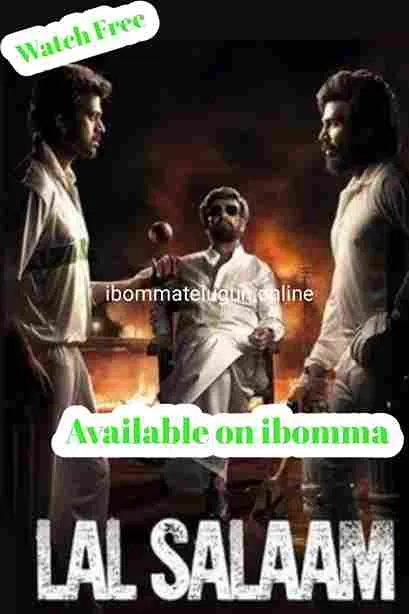Lal Salam
Lal Salam is a 1990 political Hindi movie, The director of this movie is Venu Nagavally and scriptwriter of this film is T. Damodaran. The Telugu movie depicts the life of three revolutionaries through an appreciation which is set in the 50s and 60s in Kerala, India. The plot of this story is based on political battles, internal and external hardships exerted on the characters, and more importantly the personal cost of dedicated service to communism.

Storyline
In the central story of Lal Salam, there are three main characters: Sakhavu Stephen, Sakhavu D.K. Antony and Sakhavu Sethulakshmi – all extremely active with the communists. Sakhavu Stephen (Mohanlal) is depicted at the beginning of the movie as a young man full of dreams and desire to change the society as well as to fight against injustice prevailing in society. later, he realizes some political problems and personal adversities that separate him from his friends and they elbow out.
Based on the real events, that happened in rural areas of Kerala during the sixties, the movie brings out the political struggle between hope, activism, commitment and harsh political reality. The sides of the film concentrate on the themes of betrayal and self-sacrifice as well as the topic of how the political actions affect personal aspects of individuals’ lives.
Acting Performances
In Lal Salam, there is one aspect that clearly due attention to and that is the cast that was used in the movie. In the movement role of Sakhavu Stephen from a young revolutionary to a mature party leader, Mohanlal did a very good job. Thus, he finds himself being able to express passion effectively, as well as disillusionment with his situation.
Murali in the role of Sakhavu D.K. Antony has done a satisfactory performance where the action of the man is depicted as good and the tragic and sensitive side of Sakhavu undergoes the brutal faced so-called revolution. Geetha performing the character of Sakhavu Sethulakshmi treads the audience through the hardships which women undergoing the revolution and how much patience they give for the revolution. Portraying Vijayaraghavan, Kollam Thulasi and Jagannatha Varma as the supporting cast increases authenticity and helps set the political and societal environment of the plot of the film.
Direction and Cinematography
Kerala politics as seen in the 50s and 60s is well brought out by the director Venu Nagavally. He encompasses the energy of the communist movement and the negative effects it has on characters. Effective but realistic portrayal of characters concerning the socio-political milieu is maintained in films directed by T. Damodaran. His script combines personal history with political developments precisely for such purpose.
Cinematographer Ramachandra Babu beautifully and convincingly depicts the rural parts of Kerala, full of greenery and people living in simple villages. However, once moving on to the country and its people fighting misrule, one understands the emotions that the story has brought out.
Music
Raveendran’s film music for Lal Salam, lyrics by O.N.V. Kurup has been another strong feature of the film. Others like “Lal Salaam” and “Sakhavu” fit into the revolutionary crux of the film where hard, brotherhood, hope, and fight are emotions evoked. The reasons for the film to be such are the music which attracted high and low emotions at the peaks and valleys of the movie.
Themes and Relevance
Lal Salam Kuzhappam explores many issues which are attributive to the basic themes of political loyalty, sacrifice, friendship and the reactions and decisions which tap a person’s devotion to a cause, among many others. It portrays the struggles of communism in the Indian state of Kerala through the lens of the revolutionaries’ selfless sacrifice for a cause, within this context.
This film too brings to light the bonhomie amongst the revolutionaries, their youthful enthusiasm and their determination to stand by their principles despite the changing political circumstances of the society. Although such stories are confined to a certain time frame, the themes of the movie still talk about the issues of political devotion, personal sacrifice and the fight for justice which are not specific to particular events in time.
WATCH MORE
Conclusion
Last but not least, Lal Salam is an extremely strong and effective political film that depicts the communist movement of Kerala during the late 50s and 60s period. Filled with such performers, with Mohanlal, Murali and Geetha being particularly effective, it presents quite touching aspects of the revolutionary changes. The combination of the Venu Nagavally’s direction and Raveendran’s music has a lot to do with the characters both politically and emotionally.
As for those who admire political dramas and also Hindi movie industry on ibomma, Lal Salam is a clincher since it encapsulates a poignant study of political ideals, comradeship and the price one might have to pay for revolution.
